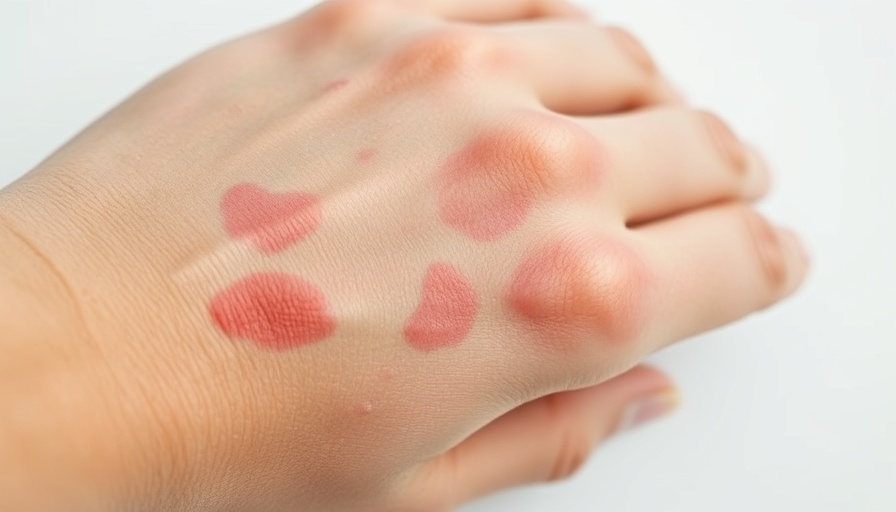
Why Eczema Affects Black and Latinx Skin More Severely
Eczema is more than just a skin condition—it's a daily challenge for millions. While about 7% of American adults experience eczema, the effects are notably more severe in Black and Latinx populations. According to research, these communities frequently face a lack of access to quality healthcare and experience prolonged periods of untreated symptoms, emphasizing the need for improved understanding and treatment options.
The Hidden Emotional Toll of Eczema
“The itching was relentless,” reflects Dr. Oma Agbai, recalling a patient whose battle with eczema began in childhood. For many, this isn't just a physical ailment. The psychological impacts—anxiety, depression, and isolation—can be equally debilitating. The emotional struggle compounds the difficulty of managing a condition that is often misunderstood in these communities.
Why Are These Populations More Affected?
Research indicates that the skin of Black and Latinx individuals may respond differently to eczema due to genetic factors, such as filaggrin deficiency, which is essential in maintaining skin hydration. This biological predisposition may lead to more severe flare-ups, making effective treatment solutions vital.
Advancements in Understanding Skin Health
The dermatology community is starting to recognize these disparities as highlighted by dermatologists like Dr. Agbai and Dr. Katrina Abuabara. Their work is crucial in developing targeted treatment strategies for eczema that consider racial and ethnic differences in skin health. Advancements in health innovation aim to bridge these gaps, providing diverse communities with the care they deserve.
Taking Control of Your Skin Health
If you or a loved one experiences eczema, know that you’re not alone. Seeking advice from a dermatologist experienced in treating diverse skin types can make a significant difference. Effective management strategies can help alleviate symptoms and restore confidence.
Improving communication among healthcare providers and patients is essential to create an environment where everyone’s needs are addressed. Don't hesitate to advocate for yourself and ask questions about your treatment options.
 Add Row
Add Row  Add
Add 




 Add Row
Add Row  Add
Add 


Write A Comment